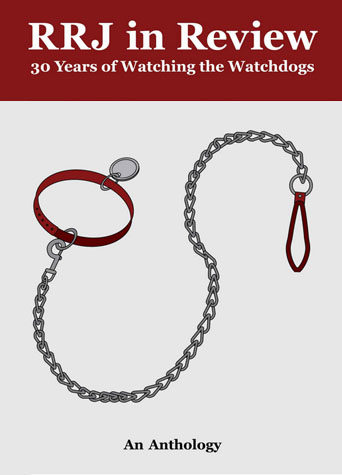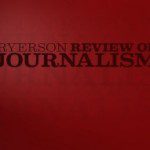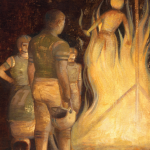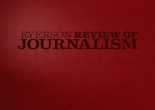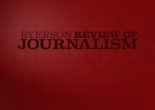Looking Back on a Legend
Ralph Allen 1913-1966
Ralph Allen was angry. You could tell by the way his face changed color, and it was now a deep shade of red. The staffers of Maclean’s magazine, all sitting at tables in a private room of a Bay Street restaurant, shifted uneasily in their seats. The 1950s were drawing to a close, and Maclean’s was in trouble. TV had cut into its market, its circulation hadn’t climbed the way the ad people said it would, and the prosperity it had experienced early in the decade was fading. Nobody knew that better than Allen, its editor. Since he took over the editorial chair one cold February day in 1950, he had bulldozed the magazine’s circulation and reputation to a higher level. So high, in fact, that to write for Ralph Allen’s Maclean’s was a feat coveted by many and accomplished by few. But now that things were slipping away, the strain was beginning to show.
After Allen dispensed with the business side of the magazine, he shot to his next topic: “Maclean’s,” he told the meeting-held regularly to discuss the magazine’s state of affairs-“is receiving manuscripts that wouldn’t be accepted on the city desk of The Brandon Sun.” High editorial standards were a passion of A1len’s, and the more he talked about how often those standards had been breached, the angrier he got. Senior writers and editors sat like scolded children in a principal’s office. Nobody spoke. Nobody dared. When he had finished, he didn’t wait for the usual round of discussions. He got up and walked straight toward the exit. The only problem was, the door that he chose to leave by was locked. Cursing, he turned around, marched to the other side of the restaurant and, with all eyes still on him, stormed out into the street.
It’s been more than 30 years since Peter Gzowski witnessed that incident, but the memory is still vivid. Sitting in his cramped Morningside office, Gzowski talks freely about Allen and what he meant to him.
“Everything I do, every day, reflects what I learned in the years that I worked for Ralph,” says Gzowski. “And I would hope that I learned from him how much this craft matters. I don’t think I ever heard him say it, but I saw him take what he did unbelievably seriously and himself not seriously at all. And I would hope that I try to do that.”
An unkempt, bespectacled, red-haired, freckle faced, enigmatic man of uneven temperament, Ralph Allen was arguably the greatest editor Canada has ever known. His 10 years as editor of Maclean’s during the 1950s has been called that magazine’s “golden age,” and is referred to by the people who worked there as “a school of writing with Ralph Allen as the faculty.” The journalists who studied at this school comprise a generation of writers who have dominated the Canadian scene: Pierre Berton, June Callwood, Trent Frayne, Peter Gzowski, Christina McCall, Barbara Moon and Peter Newman, to name a few.
When Allen died unexpectedly of a throat hemorrhage on December 2, 1966 (after having his cancerous larynx removed two months earlier), he had done most of what could be done in Canadian journalism. He had been a newspaper editor and sportswriter, war correspondent, magazine writer and editor, novelist, historian, radio broadcaster and occasional TV broadcaster. However, despite his obvious success in journalism, Allen yearned for greater and more permanent recognition as a literary artist. But none of his six books is in print today, and it seems A1len was never able to reconcile his genius as an editor with his mediocrity as a novelist.
“My father was obsessed with a desire to achieve,” says Gene Allen, now a national news writer/editor with the CBC. “But I don’t think it brought him a great deal of happiness. I think he was the kind of man who always had to do something more.”
Andrew Ralph Allen was born August 25, 1913 in Winnipeg, Manitoba. His father, William Glen Allen, was a CPR station agent who moved the family from one small railway town to another before settling in Oxbow, Saskatchewan, where Ralph grew up. Glen Allen was an overbearing, outspoken man, well-versed in Shakespeare and English poetry, who pushed his four children to make something of their lives. According to Ralph’s sister Carroll, who teaches at Ryerson Poly technical Institute’s School of Journalism and is herself a magazine writer, Glen taught his children never to compromise the best. “And that,” she says, “can be a terrible curse, in the sense that we were all terrible perfectionists and driven. But it’s also what probably made Ralph the good editor he was.” As an editor Allen took this creed and pushed himself, and his writers, to produce the best quality copy they could, a fact amusingly exaggerated by his oft-quoted remark, “This will have to be re-written before we can reject it.”
In the spring of 1930-a few months shy of his 17th birthday-Allen boarded a train to Winnipeg with less than five dollars in his pocket, a few hockey stories written for the local paper, and a reference letter from his father to the editor of The Winnipeg Tribune. It was enough to get him a job as a Tribune sportswriter for $15 a week.
While he was in Winnipeg he met his future wife Birdeen Lawrence. They married in 1939, the year after Allen moved to Toronto to take a job as sportswriter for The Globe and Mail. He was an exceptional sportswriter, concentrating not so much on the scores of the games, but on the human element involved in the sport. His first piece for the Globe, published in December, 1938 under the headline “Sports Scribe Insulted, Burglar Greets Arrival,” has become a legend of sorts, describing as it does the theft of his possessions from a hotel room the day he arrived in Toronto.
But what really made a name for Allen was his war correspondence. Few equaled his reports from the battlefields of Europe, and for that he was awarded an Order of the British Empire in 1946. He covered the liberation of Paris, the landings of Canadian troops in Italy and France-“It is now two nights and days since the last of the invasion army sailed from England, and anyone who can truthfully say he has had more than two scratchy meals or two hours of cold, cramped sleep is either one of the wounded or one of the Lord’s chosen,”-and recorded what it was like to be attacked by the RAF, when they mistakenly dropped an estimated 500 bombs on Canadian troops in France: “I never ceased to hope I would get out alive and never ceased to suspect that I would not.” But one of the most powerful pieces he wrote described the savage demise of the Nazi fighting machine near the town of Aschendorf in April 1945: “Another small corner of the world of Nazi Germany died here the other day. It was not a pretty or heroic death. The strong murdered the weak in cold blood. The weak ratted on the helpless and in the last livid hour the voice of Hitler’s Reich shrieked unheard in the crescendo of a slaughter pen.”
The year after the war ended, Allen published his first novel, Homemade Banners, based on the war. He also left the Globe to be an assistant editor with Maclean’s, becoming its managing editor the following year. In 1949 he left the magazine to become a sports columnist for The Toronto Telegram. But he no longer had a burning desire to write sports. He just felt a sports column would give him more time to write books. Predictably, he didn’t last more than 11 months before he tired of the job. (“I don’t mind writing a column,” Trent Frayne recalls him saying, “but it’s going to the goddamn games that’s bothering me.”) When Arthur Irwin left as editor of Maclean’s, Allen jumped at the opportunity to replace him.
To read the rest of this story, please see our ebook anthology: RRJ in Review: 30 Years of Watching the Watchdogs.
It can be purchased online here.
This is a joint byline for the Ryerson Review of Journalism. All content is produced by students in their final year of the graduate or undergraduate program at the Ryerson School of Journalism.



